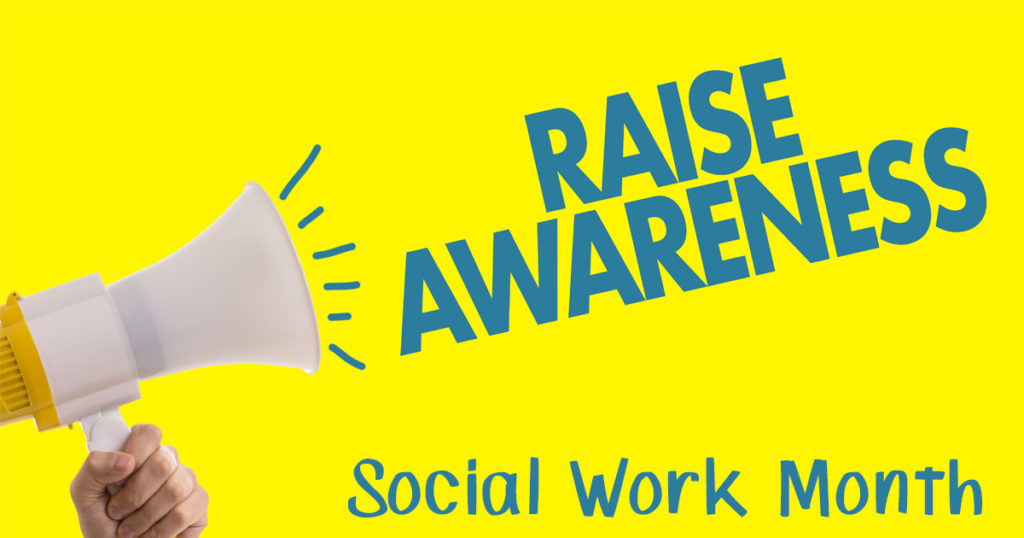
Throughout the month of March, the NASW will be presenting the Elevate Social Work Campaign. The NASW’s campaign purpose is to educate the public about social workers’ important contributions to the world, as well as the importance of the profession.
Working in settings that range from hospitals to mental health centers to family practice, social workers support a variety of vulnerable populations. But social workers themselves often don’t get the support they need in their professional practice. For National Social Work Month, we’re looking at the most common challenges social workers face, and what you can do to advocate for improvements.
Social Work is Underpaid
One challenge social workers routinely face is the low pay in their profession. While their average salary of just under $50,000 is higher than the national average, it pales in comparison to similarly trained professionals. For example, elementary school teachers, often considered one of the most underpaid professions, earn almost $10,000 more per year than the average social worker. Lower salaries can increase the stress of social workers, making it more difficult for them to support clients.
Promoting advocacy: One reason social workers earn low wages is that they often work in sectors such as not for profit and charity organizations that are underfunded and don’t have the budget to increase staff wages. By advocating to increase the funding of social programs, government services, and not for profit companies, you’ll help these employers have the funding necessary to give social workers a raise.
Social Work can be Dangerous
Did you know that social work is one of the top 10 most dangerous professions in America? Social workers often find themselves in dangerous situations when they serve their clients. Many social workers do field work or are stationed in offices in high crime neighborhoods where the populations they support tend to live. Additionally, some social workers work with clients who have histories of violence. Often, they make solo trips to these higher crime areas, to visit clients who have previously behaved erratically.
Promoting advocacy: Social workers have a sense of mission that can cause them to venture into potentially dangerous situations, but safety must always come first. We can aid social workers by insisting they receive critical potentially safety training at their workplaces and universities. Additionally, we can advocate for agencies to implement safety measures, such as requiring two social workers attend certain home visits together. Write to your congressperson to ask them to support H.R. 1309 - Workplace Violence Prevention for Health Care and Social Service Workers Act. Recently introduced in the House of Representatives, this bill would require social service workplaces to create violence prevention plans.
Social Workers are Overworked and Underappreciated
Social workers report high levels of satisfaction when asked about the work they do, but many they work extremely hard, putting them at high risk for professional burnout. Lack of agency resources and funding mean that social workers are seeing increased caseloads and have fewer supports where they can refer clients in crisis.
The work social workers is also often undervalued at the societal level. The general population often has a lack of understanding of the work social workers do and the training they’ve undertaken to perform the profession. Further work needs to be done to help the public understand how social workers elevate society by helping its neediest members.
Promoting advocacy: Social work workloads can decrease through hiring additional social workers, and the excellent news is that the profession is one of the fastest growing in the country. Ask your representatives to support H.R. 1289, a bill introduced earlier this month in congress. The important bill will allocate funding and grants to help train, hire, and retain a greater number of social workers. You can help improve public perceptions of social workers by spreading awareness of the important, varied work social workers do that help our world improve.


